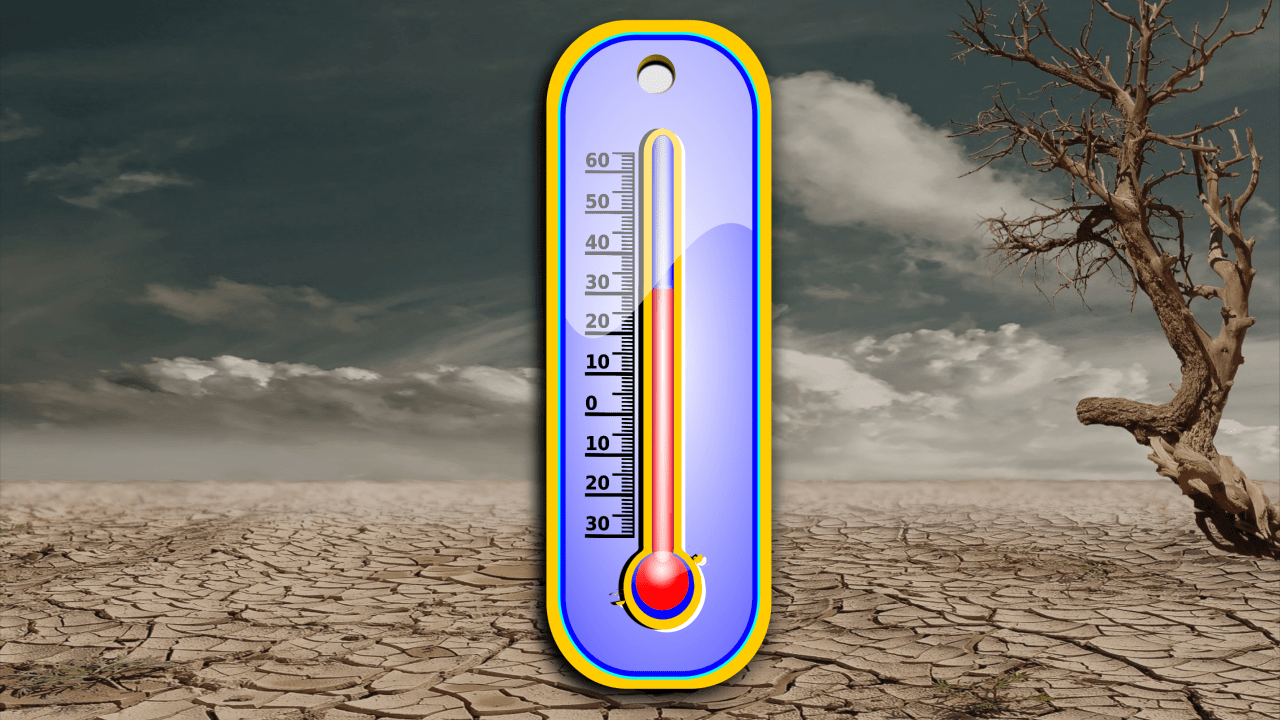From the Second Law of Thermodynamics to the Law of Entropy
There are two fundamental laws in thermodynamics. The first law of thermodynamics is the law of the conservation of energy. The energy of the universe is constant. The second law is the principle of maximum entropy. The entropy in an isolated system does not decrease.

Contents
1. What is the law of entropy?
I explained what entropy is at the previous issue, but you can understand this second law without understanding what entropy is, because it just physically explains the natural phenomenon that everyone knows in fact.

A piece of ice will make boiling water lukewarm, but lukewarm water does not “self-organize" ice surrounded with boiling water. Heat flows irreversibly from a hot region to a cooler region. A glass full of water might fall from a table to be broken into pieces with water scattered, but you cannot expect glass fragments, gathering water, will of themselves get restored to their original condition and jump onto the table. Entropy increases or at least never decreases.
2. The law of entropy compensation
You must pay attention to the proviso of the second law “in an isolated system". An isolated system is a system that does not exchange any energy, substance or information with environment. A thermos bottle can be considered as a quasi-isolated system, but no system but the whole universe can be a perfectly isolated system. The second law does not apply to closed systems, which exchange energy and information with environment, nor to open systems, which exchange also substance with environment. In other words, when entropy decreases within a non-isolated system, it must be compensated for by much more increase in entropy in the environment.
If you stir water and oil, leaving them to themselves, oil will dissociate itself from water and seem to self-organize an order. However, if water and oil are stirred within an isolated system, since it does not emit any heat energy into which the movement energy is turned, the temperature of the system will go up and water and oil will remain mixed.
A refrigerator can lower the interior temperature and entropy by evaporating, which is only possible so long as the heat of condensation outside is compensated for the heat of vaporization inside. Moreover, refrigerators emit much heat, as they require electricity.
According to the second law of thermodynamics, the universe has tended toward the state of disorder ever since the Big Bang till the maximum thermal equilibrium is achieved. On the earth, however, against this trend of the universe, life evolves and human civilization seems to have made progress. This is because living things and civilization are open systems and they can decrease entropy, while the sun and the earth in their environment dissipate (namely increase entropy of) their low entropy resources. The living things and human civilization are systems that are enabled by increase in the entropy in the environment. We not only consume the low entropy resources gained from ingesting food like other animals, but also consume low entropy resources by combusting a fossil fuel and so on.
3. The non-thermodynamic law of entropy
Low entropy created by men is not confined to material resources such as bodies and buildings. The symbolic world created by us has also low entropy because information denies the disorder of meaninglessness. The difference between material systems and information systems consists in that the environment of the former is the physical exterior while that of the latter is virtual world of meaning.
As we are not ruled by instinct, we are free and exposed to indeterminate environment, so we must select our own conducts and reduce information entropy. The language through which we decrease information entropy is differentiated. For example, the concept of “right" is enabled by its negating concept “left". As the symbolic world is differentiated, referring to other possibilities, and therefore more excessive and complex than the actual world, we must reduce this complexity.
4. Three levels of negentropy
Negentropy can be classified under three patterns:
- The increase in entropy in the material environment creates the low entropy of material systems (usual cases of the second law).
- The increase in entropy in material environment also creates low entropy of information systems (breathing and metabolism enables information processing of our brains and electricity that of computers).
- The increase in entropy in information environment creates low entropy of information systems (denying meaninglessness and falsehood enables meaning).
Let’s illustrate the third pattern. A statement “Fascism is whether right or wrong" has no information value. “Fascism is right" is meaningful because it eliminates the other possibility “Fascism is wrong". There are two candidates of predicates for one subject and selecting one candidate makes the statement meaningful. But it does not prove the statement to be true.
Whether the statement is true or not is decided by the meta-level selection by social systems. Suppose a certain politician stood as a candidate for a president and campaign for fascism. Electors must select one candidate and reduce social entropy. If the politician is defeated in the election, it means that the subjective selection “Fascism is right" is not selected intersubjectively. In social systems, an order is created by such interselections.
5. The layer structure of the law
My conclusion is:
- Material systems enable their negentropy by maintaining less random motion of molecules than that of its environment.
- Information systems attain meaningfulness by eliminating other possibilities in the excess of differentiated meaning.
- Social systems form their order by excluding deviate agents and the undesirable alternative in the interselective indeterminacy.
The increase in social entropy means the increase in alternative ways of our behavior and this increase in freedom enables low entropy, that is to say, selecting a desirable way of life.








Discussion
New Comments
When is Non-Conformity useful? Your ideas are EXCELLENT but do you define “undesirable alternative” and “deviate agents” in terms of consistency with the current status quo? When you say: “Social systems form their order by excluding deviate agents and the undesirable alternative in the interselective indeterminacy,” your words seem to refer to selection criteria.
I prefer selection criteria related to increasing the potential for improvements in adaptive capacity. In contrast to maintaining the status quo, non-conformity that is innovative in terms of increasing the groups Adaptive Capacity benefits the future evolutionary survival of the group or culture.
For example: When is Non-Conformity or deviant behavior functional or useful? For example Nelson Mandela & Gandhi broke the existing custom and existing law and so were “criminals”. Those who deviate from accepted norms include both the criminals who make things worse and also those innovators who improve society. Most social advances are brought to us by individuals who break the old rules and violate existing norms. So how can society encourage “good” innovations that reject or improve “standard operating procedures” while discouraging the destructive innovations?
Before answering questions like this, it may be necessary to develop a theory of social systems that provides conceptual tools to help us examine how the “adaptive capacity” of a social system evolves, increases or improves? It may be ethnocentric, but I believe that it is more useful to view the success of Western European Civilization as due to its superior adaptive capacity, rather than view all cultures as equal. The culture of poverty among certain ethnic groups in the United States, which does not value education, deferred gratification, and many other values that facilitate upward mobility. The culture of poverty is adaptive to being poor and tends to keep families in poverty over many generations.
So, in a given social environment, all cultures are not equal in terms of their effects. Some patterns of values increase the adaptive capacity of a group in the modern world. From an evolutionary perspective, social systems should be valued, to the extent that they continually try to increase the group’s adaptive capacity continually try to improve the adaptive capacity of individuals including those “quality of life” issues related to freedom, creativity and enthusiasm in individuals which facilitate innovations in the group’s adaptive capacity.
Individual “adaptive capacity” is a separate category or assumption to guard against the “Utopian Ant hills” designed by authoritarian (or humorous?) social theorists like Plato. The human evolutional path is continuous improvement in adaptive capacity through culture, not the stable, unchanging design of the cockroach or anthill.
Humans increase their adaptive capacity by developing their technology and culture, which in turn is facilitated by individual freedom and creativity, not by “groupthink” in a totalitarian or anthill society which has excessive obedience to authority and conformity to the status quo (in terms of facilitating increases in adaptive capacity).
Since American values are said to be more individualistic, and non-conformist than Japanese values, and since both sets of values are highly successful, any disagreement, innovation or improvement on the above perspective would be much appreciated.
Non-conformity is always very important to improve systems. I said, “The increase in entropy in information environment creates low entropy of information systems.” In the case of the social system, which is a kind of information system, “the increase in entropy in information environment” corresponds to “non-conformity of deviate agents” and “creates low entropy of information systems” corresponds to “improves social systems.” Suppose everyone said, “Anything is OK. I do not object to anything”, there would be no debate, no competition and no improvement. Debate and competition increases entropy and this increase in entropy can improve social systems, that is to say, decrease entropy.
By the way, why should we improve our social system? Maybe in order to maintain the system. Systems must change in order not to change. To avoid this paradoxical expression, the empirical order should be distinguished from the transcendental order. The transcendental order is an ideal, lacking in any description except such as “desirable order”. The empirical order changes but the transcendental cannot.
If the proposition you cited still sounds totalitarian, I will rewrite it as follows. “Social systems form their order by trying to excluding all the undesirable possible alternative in the interselective indeterminacy.”
As you point out, Japanese society is group-oriented and I don’t like this culture. Since I am an individualist, I am a deviate agent in Japan. The group-oriented society can succeed in the industrial society, but not in the information society. I hope Japan will change someday.